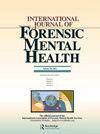Current Practices in Incorporating Culture into Forensic Mental Health Assessment: A Survey of Practitioners
IF 0.9
4区 医学
Q3 CRIMINOLOGY & PENOLOGY
International Journal of Forensic Mental Health
Pub Date : 2021-09-13
DOI:10.1080/14999013.2021.1952355
引用次数: 0
Abstract
Abstract Forensic evaluators conduct assessments of individuals with a wide range of sociocultural identities. Although recommendations regarding how to incorporate cultural considerations in forensic evaluations have been published over the past decade, there is no clear consensus on best practices nor is it clear how evaluators interpret and apply the available recommendations. The current survey represents a replication and extension of a previous survey regarding self-reported culturally-informed practices among forensic evaluators. Subjects were forensic mental health professionals (n = 258; 64.7% women, 69.4% PhD or PsyD) recruited through listservs and training events to complete a survey online or by hard copy. Evaluators reported significant challenges in conducting culturally-informed evaluations, including lack of appropriate tests for their examinees, lack of guidelines for their evaluations, lack of colleagues from diverse backgrounds, and lack of relevant research. Evaluators reported engaging in a wide range of culturally-informed practices across all domains, some being nearly universal (e.g., considered cultural context when forming diagnosis). In contrast, other practices were relatively uncommon (e.g., referred the evaluation to another professional with more knowledge/experience regarding examinees with particular identities). Results indicate a need for more research, more practice guidelines, and diversification of the forensic mental health workforce.将文化纳入法医心理健康评估的现行做法:对从业人员的调查
司法鉴定人员对具有广泛社会文化身份的个体进行评估。虽然在过去十年中发表了关于如何将文化因素纳入法医评估的建议,但对最佳做法没有明确的共识,评估人员如何解释和应用现有建议也不清楚。目前的调查是先前关于法医评估人员自我报告的文化知情做法的调查的复制和扩展。研究对象为法医精神卫生专业人员(n = 258;64.7%的女性,69.4%的博士或心理学博士)通过列表服务和培训活动被招募来完成在线或纸质的调查。评估人员报告说,在进行了解文化的评估方面面临重大挑战,包括缺乏对考生的适当测试、缺乏评估指南、缺乏来自不同背景的同事以及缺乏相关研究。评估人员报告说,他们在所有领域都参与了广泛的文化知情实践,其中一些几乎是普遍的(例如,在形成诊断时考虑文化背景)。相比之下,其他做法相对少见(例如,将具有特定身份的考生的评估转介给具有更多知识/经验的其他专业人员)。结果表明,需要更多的研究,更多的实践指南,以及法医精神卫生工作人员的多样化。
本文章由计算机程序翻译,如有差异,请以英文原文为准。
求助全文
约1分钟内获得全文
求助全文

 求助内容:
求助内容: 应助结果提醒方式:
应助结果提醒方式:


